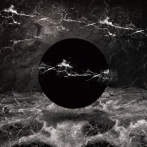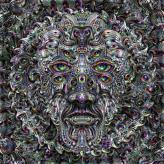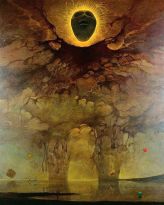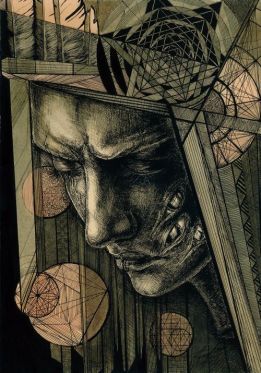Slavoj Zizek’s Confusion





For years I’ve listened to Slavoj Zizek’s misunderstanding of Gnosticism as he confuses it with the whole tradition of Hermeticism. Hermeticism and its Magical systems would culminate in John Dee’s ideology of the ‘exaltatio’ or the self-divinization of humanity. As György E. Szonyi tells us the Magus was central to the Hermetic tradition of Occult in the West, and the whole struggle of Alchemy and the Hermetic Arts culminated in the Great Work. György E. Szonyi in his magisterial John Dee’s Occultism – Magical Exaltation Through Powerful Signs states:
“This is, the ideology of exaltatio, that is, the deification of man, which I see as the intellectual foundation of magic, a foundation that even today validates magical aspiration and its scholarly research. I also argue that it was the desire for exaltatio which framed and tied together the otherwise amazingly heterogeneous thoughts and activities of John Dee.”
John Dee and the magickal traditions arose out of Hermetic and Alchemical thought rather than Gnosticism proper. At the heart of both Hermetic and Alchemical thought and praxis was the ‘Great Work’ which as Szonyi explores it is this process of exaltation or self-divinization or immortalization, etc. Gnosticism is not the exaltation of self but its opposite. The Gnostic’s soteriological thought and praxis was the erasure and decreation of self, while releasing the hidden god or spark through the power of negation or unnaming in an apophatic process. Whereas the Hermetic Magus sought to reinforce the self and exalt it into absolute godhood and divinity, the Gnostic sought to void the self releasing the god-spark of the Alien God. Two completely different metaphysics and meta-techniques. It’s this difference that makes the difference between the Transhumanist adventure which is steeped in the Hermetic-Alchemical Great Work metaphysics of self-divinization and exaltation that separates it from many Posthumanisms. This is where I disagree with Zizek who confuses Gnosticism with Hermetic-Alchemical traditions in his new work and thereby gets it all wrong.
Confusing the Hermetic-Alchemical traditions with the Gnostic-Kabbalistic traditions has been one of those undercurrents in scholarship and culture that pervades philosophical speculation in Transhumanism, Posthumanism, and Rational Inhumanism. It’s this lack of clarity between the various counter-cultural or underground traditions that have accrued errors over the years.
I’ve seen the same argument from Zizek about New Age obscurantism and his incessant confusion of the the positive Hermetic traditions with negative Gnostic apophatic traditions. As in this passage from his new work on the Wired Brain and Neuralink:
“Today, this theological dimension of the wired brain is making a spectacular return, just (as expected) deprived of the Communist underpinning. The sublime obverse of Musk’s cynical insight “let’s try to catch up with the machines so that we will not become apes in a zoo” is the gnostic New Age reading of Singularity as not only the new stage of post-humanity but a key cosmic event, the accomplishment of the divine self-actualization: in Singularity, not only we, humans, become divine, god himself becomes fully divine. Insofar as Singularity also implies a kind of synchronicity of minds, no wonder it calls for theosophical speculations. That is to say, when synchronicity is debated, the obscurantist temptation is almost irresistible – no wonder Jung loved this notion.”
———————————————–
Funny that he brings up Jung who in my own opinion did the same
confusing and merging the Gnostic and Hermetic-Alchemical traditions
producing a literalist objectivization of Hegel’s notions of
Spirit-Geist as the Objective Psyche or Collective Unconscious. Instead
of separating Gnostic Soteriological thought from the Exaltatio of the
Great Work in Hermetic-Alchemical lore and techniques Jung became one
more obscurantist as Freud knew all too well. Freud was a dualist, Jung a
monist. Freud followed Schopenhauer and took the blind Will as Drive
and developed all his scientific mythology of pleasure/pain (Lacanian
jouissance) into eros / thanatos etc. While Jung would objectify and
literalize it as real agents or entities existing in the Objective
Psyche. Freud internalized it as a dualist, while Jung externalized it
as a monist.
Gnostics being dualists did not internalize the entities (i.e., psychologize them as part of psyche, etc.) … the Gnostics believed the Archons were part of what Kant would term the noumenal or our later sense of the Outside. Not the inside… it is the Hermetic-Alchemical traditions that Jung used to internalize and symbolize the various objective entities of his Objective Psyche later Collective Unconscious. Two different things… Jung’s epigones and disciples would confuse this as well. But Freud would impersonalize these entities as trieb-drive, while Jung would personalize the entities as archetypes. For Freud these entities were the irrational drives (Trieb), while Jung literalized and personified them not as impersonal drive but as actual archetypal persons. This is why Freud is a dualist and saw these as impersonal and irrational forces playing havoc with humanity. Jung was a monist and literalist seeing like Plato’s realism archetypal powers as actual Ideas-Forms and Agents internally in the Objective Psyche, etc. This is why Freud and Jung parted ways…